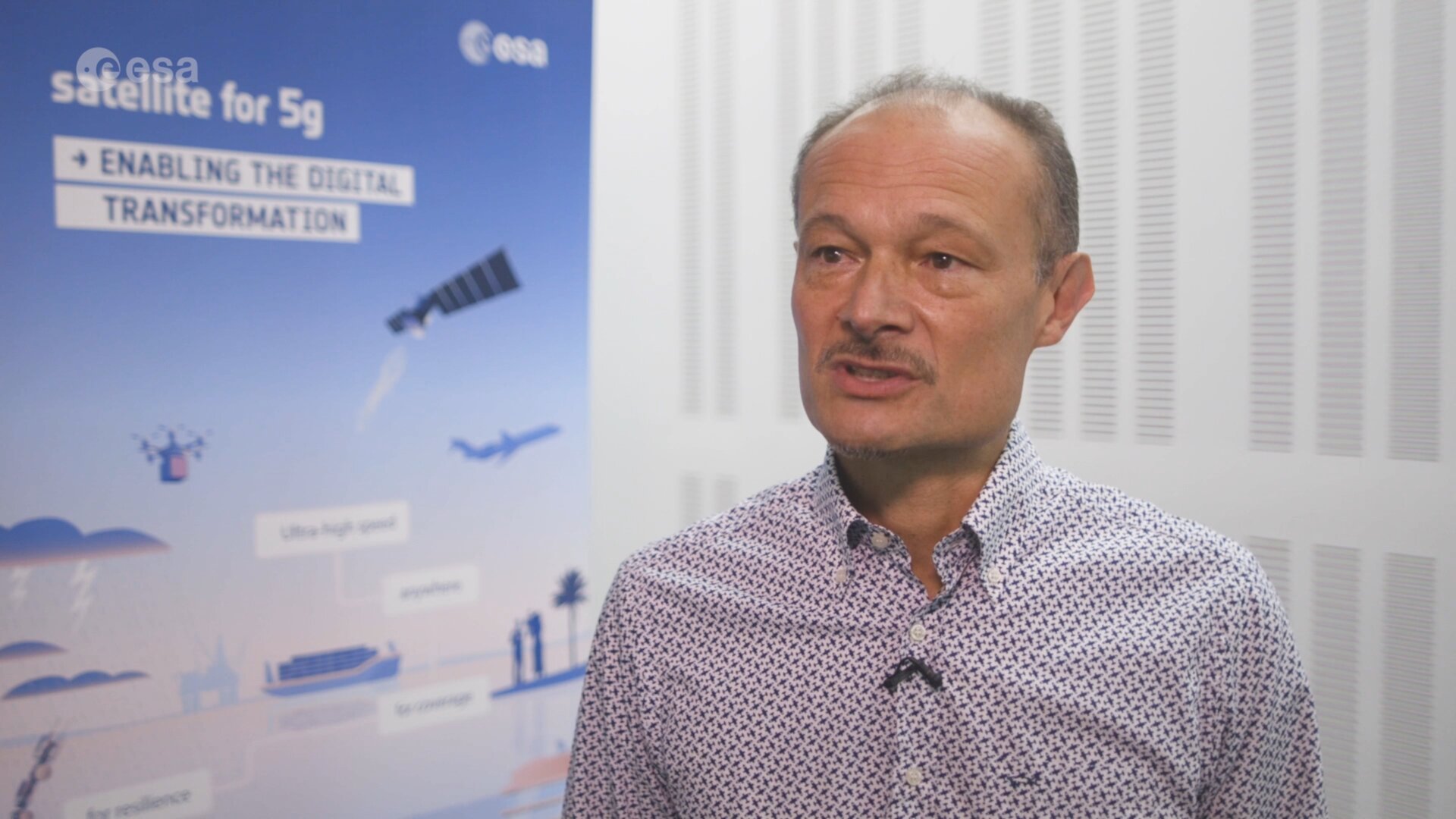Space to accelerate the connectivity revolution
A centre for innovation that will showcase how space can enable future generations of telecommunications and connected applications is being developed.
The 5G/6G Hub – based at ESA’s European Centre for Space Applications and Telecommunications at Harwell in the UK – is a place for collaboration, where industry will take advantage of the immense potential of converged satellite and terrestrial telecommunications networks to create innovative applications that benefit society and the environment.
ESA’s ambition is to extend the Hub’s technology to cover businesses at the Harwell Campus, and then across Europe and beyond to connect with other research facilities, fostering innovation in ESA’s member states and globally.
Society and industry are undergoing a digital transformation, with ever increasing communications demands. 5G, which is currently in its infancy, will enable this by delivering unprecedented connectivity. But safe, reliable and seamless communications can only be guaranteed by integrating satellites with existing terrestrial 5G infrastructure.
As the transformation continues, a further generation, 6G, with even greater capacity is expected to be rolled out in the 2030s.
Initially, the Hub, which is being built with information technology company CGI, will focus on 5G.
Software is being developed that will enable the convergence of satellite and 5G terrestrial communications networks. Using this future 5G environment and state-of-the-art equipment, businesses from many industries will partner with ESA to test and develop innovative applications.

Integrated satellite and 5G terrestrial networks have enormous potential to address important challenges and improve peoples’ lives on Earth.
The technology’s capability to provide instant connectivity is expected to enhance augmented reality technology, as well as help machines exchange information with one another via the internet of things, which will bring connectivity to remote areas including disaster zones and rural communities.
It could enable countless applications – from remote education and telemedicine solutions, to environmental monitoring networks, low-emissions autonomous vehicles and sustainable, smart city ecosystems.
The facility will also bring together innovators from across the 5G ecosystem – including satellite and terrestrial network operators, equipment providers, and application developers – to create 5G solutions.
The Hub forms part of ESA’s wider efforts to use space technology to enable connectivity.


Access the video














 Germany
Germany
 Austria
Austria
 Belgium
Belgium
 Denmark
Denmark
 Spain
Spain
 Estonia
Estonia
 Finland
Finland
 France
France
 Greece
Greece
 Hungary
Hungary
 Ireland
Ireland
 Italy
Italy
 Luxembourg
Luxembourg
 Norway
Norway
 The Netherlands
The Netherlands
 Poland
Poland
 Portugal
Portugal
 Czechia
Czechia
 Romania
Romania
 United Kingdom
United Kingdom
 Slovenia
Slovenia
 Sweden
Sweden
 Switzerland
Switzerland



























